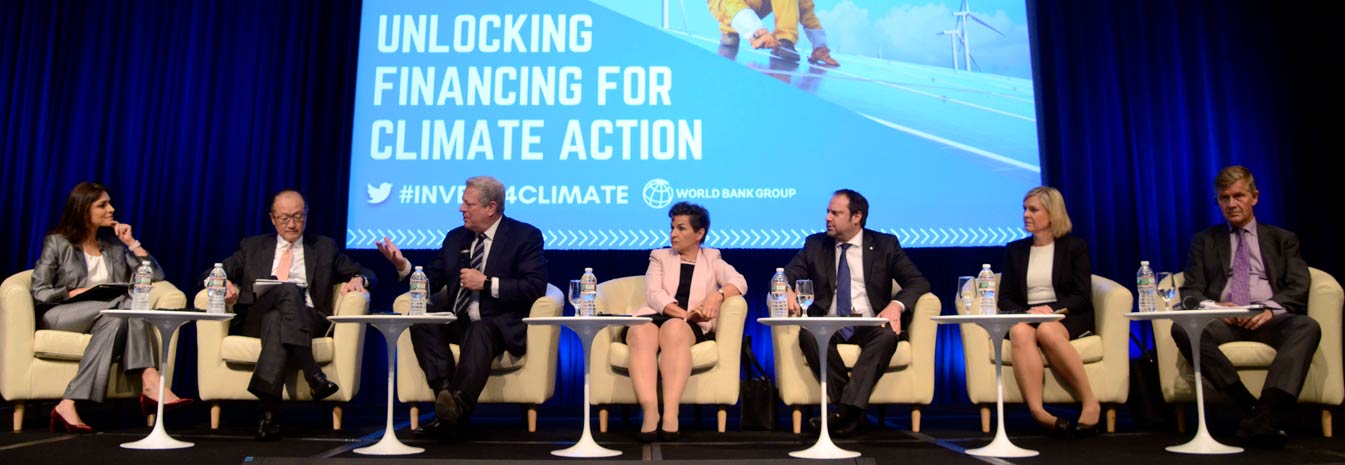
During the 2017 Spring Meetings of the World Bank Group and the International Monetary Fund (IMF) the panel discussion “Unlocking Financing for Climate Action” sent an inspirational message. The question was how to mobilize the trillions of dollars in private and public investment needed to ensure that the world meets the Paris Climate Change Agreement’s aim of keeping a global temperature rise this century well below 2 degrees Celsius.
The high level-panel featured the President of the World Bank Group, Jim Yong Kim, the Former Vice President of the United States and Chairman, Al Gore, the Mission2020 Convenor, Christiana Figueres, the Founder and Chairman of Skoll Foundation, Jeff Skoll, the Minister of Finance of Sweden, Magdalena Andersson, the UNEP Executive Director Erik Solheim, and it was moderated by the journalist Ghida Fakhry. To a capacity audience at the World Bank headquarters the overall message was one of optimism, that it is possible to tackle climate change by raising the necessary finances.
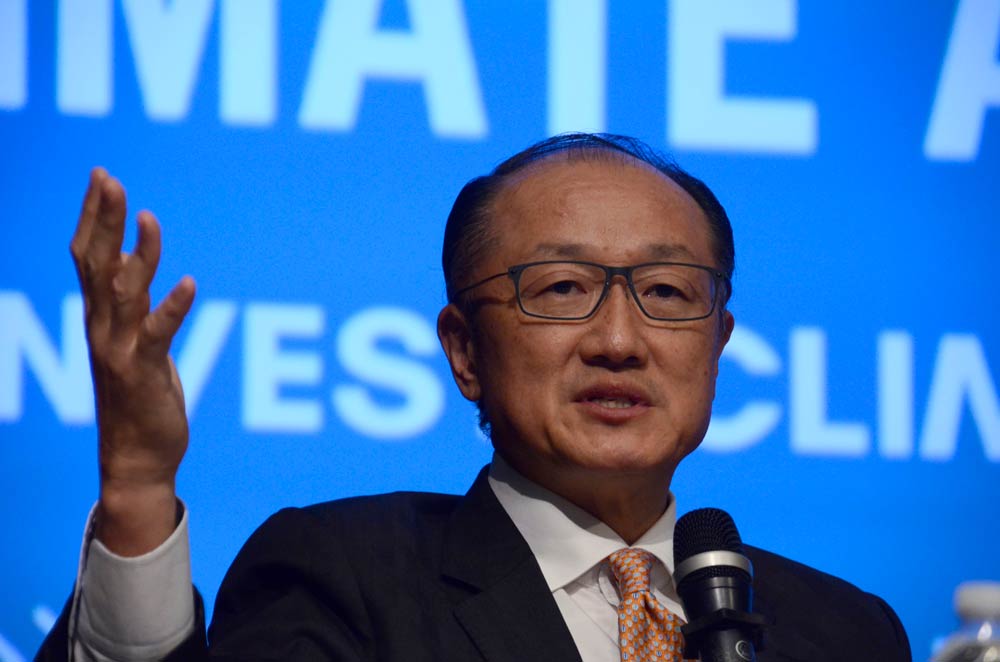
Jim Yong Kim, President of the World Bank Group. Photo Credits: Max Thabiso Edkins/Connect4Climate
Reemphasizing the World Bank’s efforts as the largest funder of climate-related action, President Kim emphasized that climate change is one of the great issues of our time. There are trillions of dollars waiting for more lucrative returns, $8.5 trillion in negative interest rate bonds, $24.5 trillion in very low-yielding government-type bonds and a further $8 trillion in cash, and these could shift towards financing climate action. "Quite apart from what you think about climate change, there are opportunities for investments that will give you higher yield than any of those investments in which over $40 trillion is sitting right now," Jim Kim said.
New climate policies were discussed, in particular Kim supported the notion of putting a price on carbon: “If you don’t have a price on carbon you are going to be behind, because the incentives for innovation in some of the fastest growing fields for the future will not be there in your country.” Sweden stands out as an exemplary country that has experienced high growth with a high price on carbon.
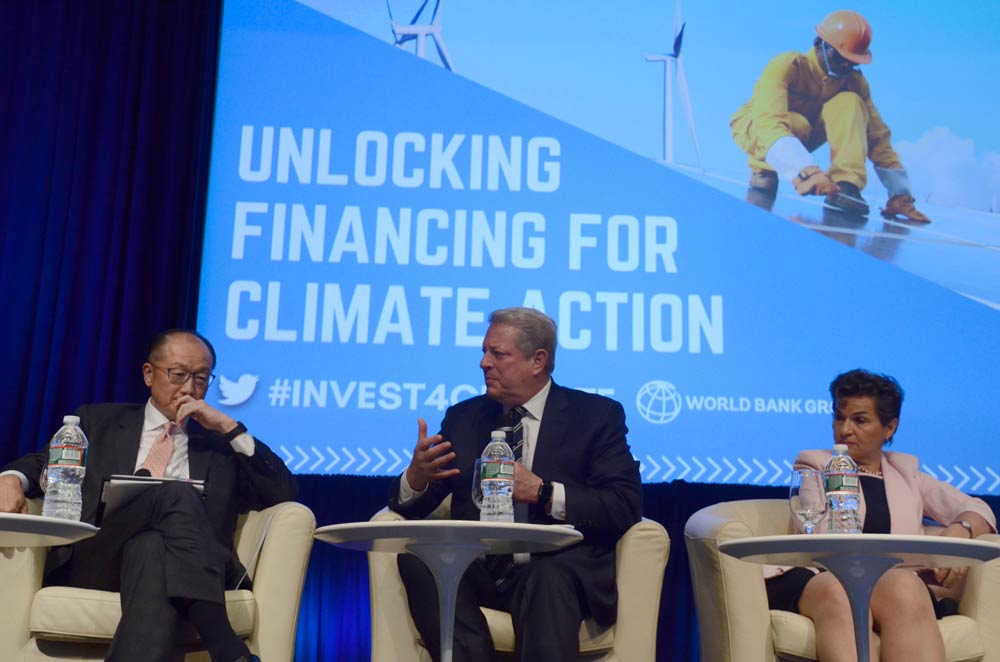
Al Gore emphasized that he is optimistic with regards to dealing with climate change: "There is no doubt in my mind that we will solve the climate crisis." Pointing to the importance of a sustainable revolution, the Former Vice President of the United States made sure to highlight the importance of urgency: "How quickly we win this” is determined by how much finance can be leveraged. He emphasized that there is already a lot of momentum pushing climate solutions: “Solar jobs in the US are now growing seventeen times faster than jobs in the US in general.”
“It is now clear that we are in the early stages of a sustainability revolution that has the scale and magnitude of the industrial revolution, but the speed of the digital revolution. Business and industries worldwide are retooling in order to be competitive. They are using the new digital tools, including the internet of things, and they are finding ways to boost productivity and profits, even as they sharply reduce emissions,” Al Gore underlined that we are at an inflection point in history.
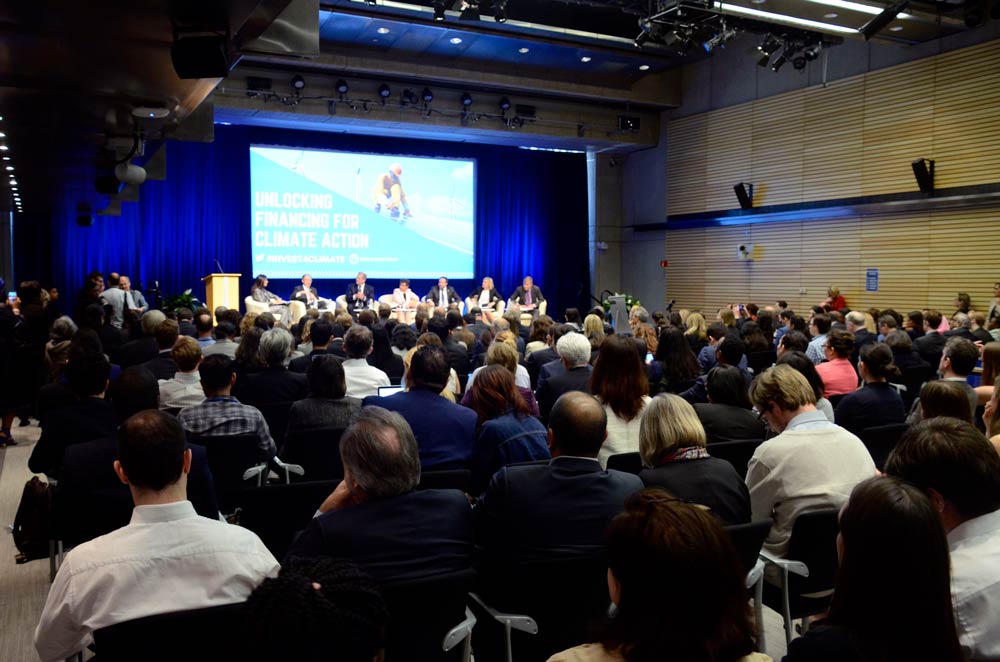
An engaged audience followed the high-level discussion at the Preston Auditorium, World Bank Headquarters, Washington, D.C. Photo Credits: Max Thabiso Edkins/Connect4Climate
To an inspired audience Christiana Figueres, recalled that “the world is bringing more and more solutions,” stressing the need of shifting people’s mindset in order to move forward towards a sustainable future. According to Figueres it is absolutely critical to focus on a green economic growth to accelerate climate action. “Thinking that climate action is expensive is so five minutes ago,” said the former Executive Secretary of the United Nations Framework Convention on Climate Change.
Magdalena Andersson presented the Swedish experience in support of climate action, explaining how carbon taxes made her country “more attractive for investment in clean energy and in the environment” resulting in better job rates and an increase in its economic growth.
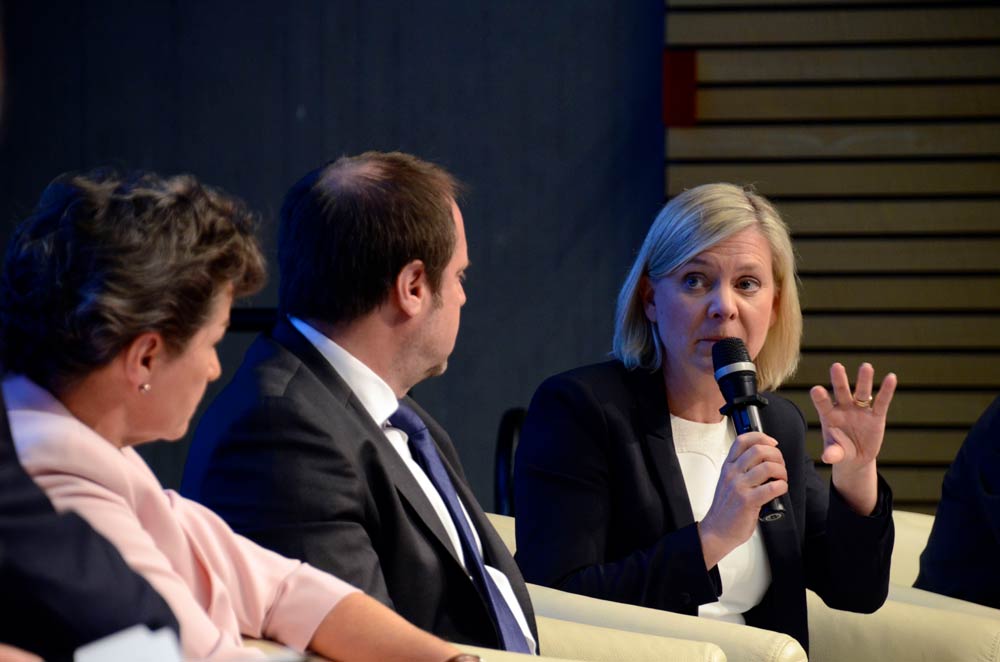
Magdalena Andersson, the Minister of Finance of Sweden. Photo Credits: Max Thabiso Edkins/Connect4Climate
Complementing Magdalena Andersson’s perspective, the UN Environment Programme Executive Director Erik Solheim stressed that investors believe in a sustainable future, but there is, still an important question to be answered: “How can we regulate the market so they go green? What will it take for the financial market to go green?”
With a personal intervention, Jeffrey Skoll from a private sector perspective emphasized that the energy revolution is speeding up. “We are within a year and half of the next generation of batteries, that will be a fraction of the cost, with far more storage,” he emphasized, also noting that renewables “are at price parity, or better, than the cheapest of the fossil fuels.”
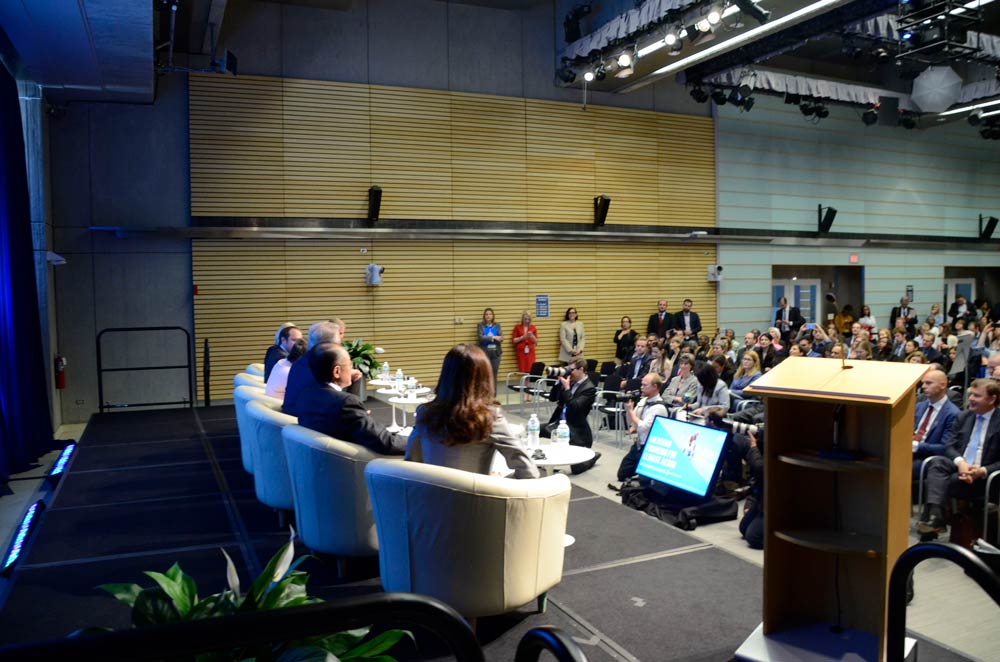
The high-level panel discussed how to unlock financing for climate action. Photo Credits: Max Thabiso Edkins/Connect4Climate
The inspiration throughout the discussion was noticeable, as expressed by Erik Solheim: “There is every reason to be a global optimist.” Christiana Figueres underlined that the discussion is actually about “unlocking financing for economic growth that, by the way, has climate benefits…This is the story of growth of this century.”
In closing Jim Kim reminded the Spring Meetings audience why climate action is so urgent: “We must protect a planet that we and our children and grandchildren deserve to live in.”



